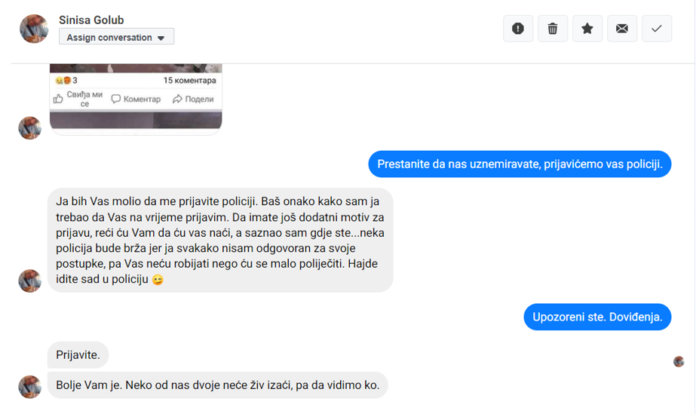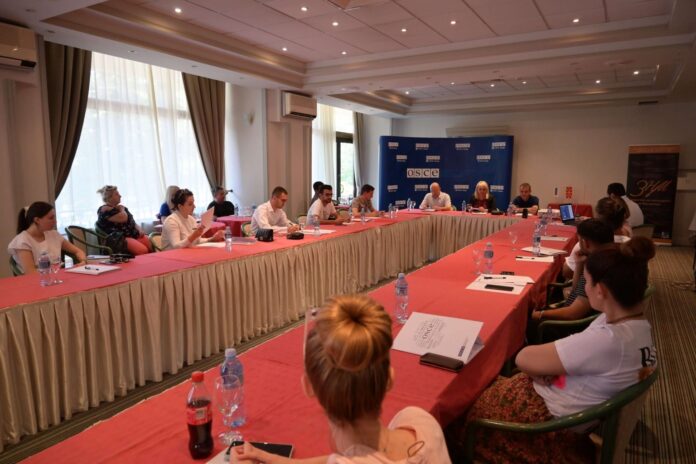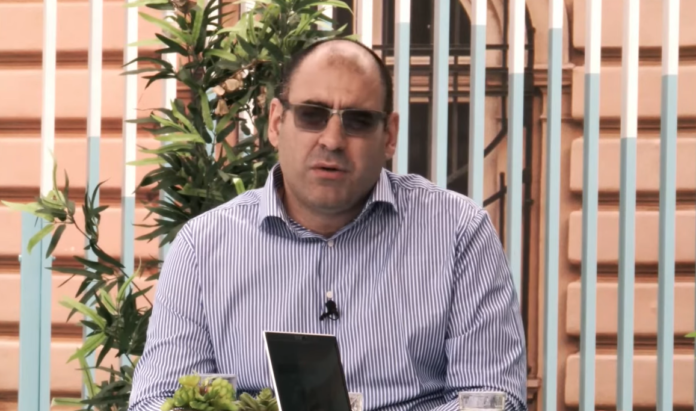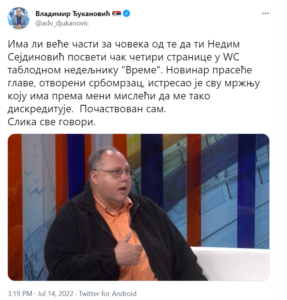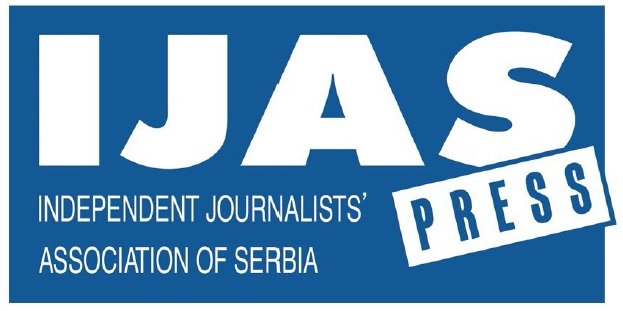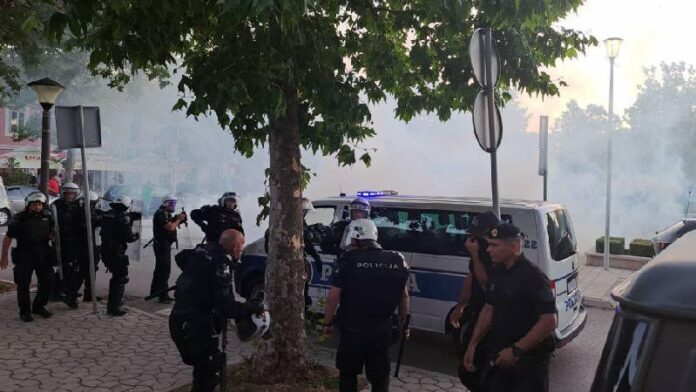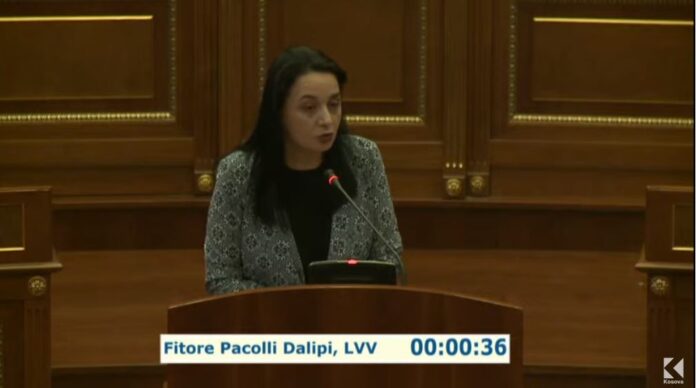One could say that it would make sense to assume that the freedoms we have today and which we once fought for, are won forever. However, the US Supreme Court’s decision to overturn Roe v. Wade which protected women’s right to choose to have an abortion proves that rights are not guaranteed and cannot be safeguarded forever. The publicity that the Supreme Court’s decision has taken globally, brought to the fore the abortion debate in the Balkans.
The media agenda in different Balkan countries seems to be influenced by one another. As such, when the abortion debate reached Croatia, it sparked a debate in Serbia. During a discussion in a Serbian TV channel a representative of the Serbian Orthodox Church said that Serbia ‘is disappearing due to abortion’. Such arguments are in line with the government’s views regarding abortion. Ratko Dmitrovic, the Minister for Family Care has accused women for being so emancipated that they no longer want to give birth: ‘Women who do not want to give birth are to blame for the population decline in Serbia’, the minister said, and further in attacked those who have a single child or those who will not or cannot give birth: ‘We have women who say – ‘I just don’t care, I won’t give birth’. And no one is allowed to say anything to her, to resent her. Those who have attacked me, (…) are mostly women with one child, or those who do not have children. So, they simply do not allow it to be discussed,’ said Dmitrovic.
At the same time, controversial topics such as abortion and reproductive rights in general seem to be used by the mainstream media in order to distract the public from other crucial issues that have political implication of the country’s government.
Reproductive rights, including the right to abortion, in the region became a public issue in 1969, when Serbia was part of Yugoslavia, with the case of Šefka Hodžić who was convicted for murder of her pregnant friend Alija Hasanović. This case is also an example of how patriarchal matrices are woven into motherhood and how the imposed patriarchal patterns could lead to fatal situations.
According to the indictment, a woman from the Bosnian village near Zvornik killed a pregnant acquaintance, took the fetus out of her womb which lived, and then presented it as her own child. Before the incident, the women who was unable to conceive, wore a pillow for nine months and pretended to be pregnant. This incident has also inspired playwright Maja Pelević to write the shocking piece titled “The Last Girls”, which talks about how wombs have become factories that “produce” babies, how women are losing control of their bodies, and how capitalism is becoming the “majority owner” of women’s wombs.
‘I’m not saying that the right in Serbia is not steadily growing. It is growing, but it is still, it seems to me, controlled. Everything that the government is currently doing regarding world events and our attitude towards it is quite a big ping-pong game. In a country that has not even come close to some serious EU negotiations, a very big problem would be if the issue of abortion were suddenly raised. We are now fulfilling various EU quotas: human rights, gay rights, and even the Pride that took place (Pelević calls it “Vučić’s Pride”), but if only that were really the Serbian mentality. I do, however, think it’s all purely on paper. Because it had to happen. That is why it does not seem realistic to me that now the church is suddenly strengthening so much that it regulates things such as the ban on abortion. I don’t know if something different will happen in the future, if the extreme right will develop enough to enter the parliament in large numbers. But it doesn’t seem like that to me. I think that the right-liberal current is much stronger at the moment and in that sense it would not allow itself that kind of mishap. That is the way it balances out, it is a kind of game Vucic plays between “being a great European” and flirting with Russia, but I don’t believe that he would go that far because it would not be in his favor, and not because he wishes women well. I think that for him, on his path, which is the proverbial path of sitting between two chairs, it would be very radical,’ Maja Pelević tells RDN.
Maja Pelević also connects the emergence of the abortion narrative in Serbia and in the region the understanding of liberal capitalism.
‘Capitalism, is closely tied to patriarchy, which is again tied to the right. The neoliberal order is the right order. Not the left one. In some left-wing practices, there are freedoms and much more humane ways of life, regarding all aspects of life: people and classes, religion and nation, men and women. These rights must be won again because they do not really exist in capitalism. They do exist on paper, as in America, for example, there are anti-racist policies, but still, there are cases where African-Americans in Central America are killed without pardon. Capitalism has all these totalitarian fascist ways of functioning, but it masks them well: the media and various phrases like – freedom, equality, justice, but in essence, we all know very well that these are countries where, daily, human rights are very much endangered indeed. The case of Julian Assange is a very eloquent example in that sense,’ concludes Pelević.
The patriarchal narratives in the Serbian society and the media seem to be the root of the reemergence of the abortion issue in the country.
‘The female body in Serbia, unfortunately, belongs least of all to women. Her body is in constant ownership of the patriarchal mentality: the only acceptable female body is the female body which lacks freedom. Even while she is a little girl – they pierce her ears and decorate her without her consent, telling her “others decide regarding you”. If a woman wants to dress at her own discretion – it is as unacceptable, as – according to the standards of masses – it is to decide regarding her own offspring, if she does not say “no” loud enough, if she says “yes” too loudly. The oppression served through tradition and the church, and now through politics, is never direct, but insidious. This oppression is presented as freedom, but with restrictions: to have measures, to have good taste, to be feminine, to have feminine manners, to respect the elderly. A woman in Serbia thinks she is free until she starts practicing the definition of true freedom. Only then does she realize that this original freedom was actually a cage,’ Bogdan Stevanovic tells RDN.
Stevanovic, who is also known as Blogdan, is a ardent advocate of women’s rights in Serbia and his social media are followed gather a very large audience.
The abortion debate in Bosnia-Herzegovina
The issue of the right to abortion in all Western Balkan countries seems to be on the same path. Like Serbia, the abortion debate has reached Bosnia-Herzegovina as well.
‘It is interesting that every freedom must be fought for, but for every abolition of freedom, only one signature on a document is enough. The problem with abortion, whether we are “for” or “against”, is that it can be banned, but it cannot be stopped. What can be done is to make a phenomenal ground for illegal “butchers” who have always operated, not only in the movies we watch, but also in real life. The legal ban on abortion is not only a threat to the right to choose, but also a direct threat to a woman’s life. And again, it is very interesting that what happens to a woman’s body is decided by the law,’ says Verdana Božinović who is the first woman director of the Sarajevo National Theater Drama in its 100 years history.
Božinović also referred to Margaret Atwood’s book the “Handmaid’s Tale”, which was adapted as a series which depicts a world without individuality. A conservative world where women are merely the property of men. Art, music, and theater are forbidden. “Offenses of homosexuality”, abortion, reading books, disagreements with the system – they are punished by public hanging. In the same world there are women who are, legally, raped once a month by their ‘owners’ in order to give birth to children.
‘The abolition of one freedom always brings the abolition of the second and the third and the fourth… until there are no more freedoms. Until there is no more life,’ Bozinovic tells RDN.
Author: Snežana Miletic


